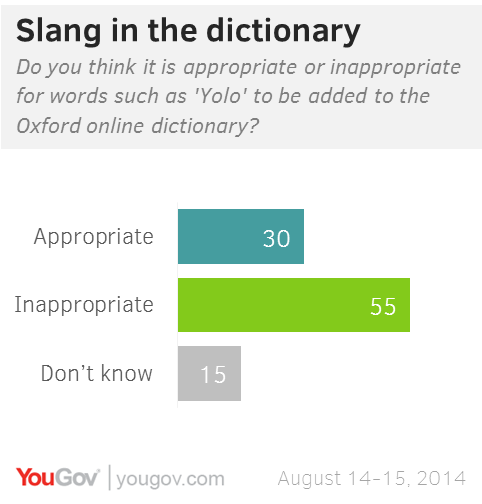Slang and its
inclusion in the OED is represented in popular media. Some articles focused on
how words were chosen for insertion and scholars like Charlotte
Brewer focused on the digitalization of the OED with a brief history on its
formation. She advocates for this format
as it updates faster if there are mistakes or when new words are invented. Brewer’s
brief history of the OED shows its publication and how words are added, edited,
and their significance. Even though popular media is not typically as detailed as the scholarly journals,
they do touch upon the on-going debate of the importance of slang in the
dictionary. Writers like Hayley
Spencer from Glamour Magazine are enthusiastic about these words being
added. Her article focuses on popular slang words added to the dictionary and quotes
the OED’s editor,
Katherine Martin, as
stating: "One
of the advantages of our unique language monitoring programme is that it
enables us to explore how English language evolves differently across the
world.” Spencer also focuses on new words and phrases being added to
OxfordDictionaries.com once the editors prove, through extensive research, that
they have widespread frequency.
Another
article centers on words that were added in the OED at the time of its publication
and it briefly mentioned the history of slang words dating back to 1755 in Samuel Johnson’s
Dictionary. However in 1884, the OED superseded it. Paula
Young Lee, a writer on Salon.com believes that the usage of slang has a
delightful history and even though word lovers are repulsed, there is evidence
to show that slang has been around for centuries. Her article is reflected in
academic articles such as Martin Levinson’s where he discusses etymology in the OED and its history.
 |
| Illustration courtesy of yougov.co.uk |
Lauren Squires,
another author I found in my academic research, talks about public discourse
about language and computer-mediated communication. She believes Internet
language provides language variety and has social significance and importance. Internet
language does reflect our culture and it shows that language variety enriches
our language.
These sources show academic research in popular media, but differently.
Their descriptions are accurate, but are not as thorough. I believe this to be a
matter of attention span. Most people don’t have time or patience to sit and
read an in-depth article and most popular media caters to this. They want to
grab their reader’s attention in as few words as possible. The way the
scholarly articles are written requires attention to detail which is not
something people want to do when reading from their favorite magazine. I
believe that scholarly articles are too narrowly focused for the general public
because their emphasis on intricate ideas lose the audience’s interest. Some of
them are written too academically because they are too complex to follow in one
reading and sometimes they are not inviting.